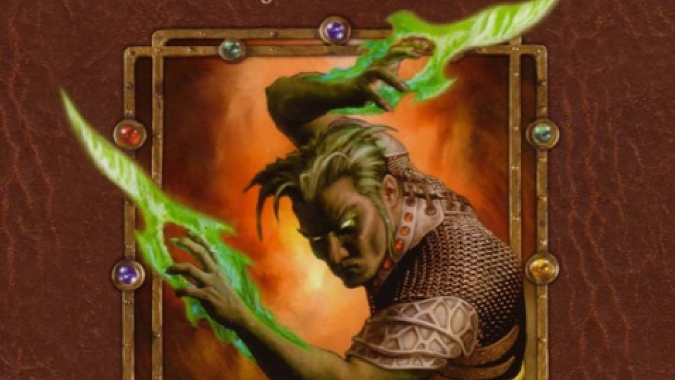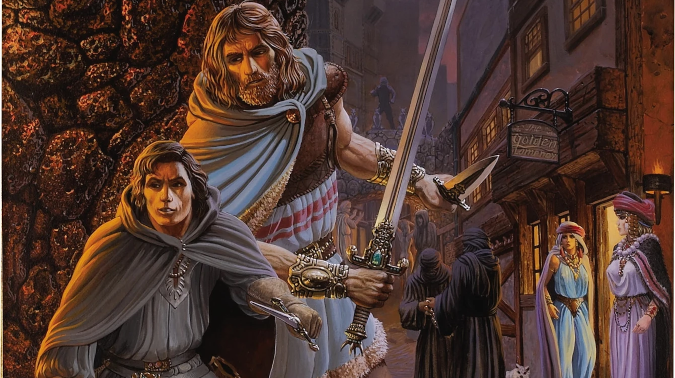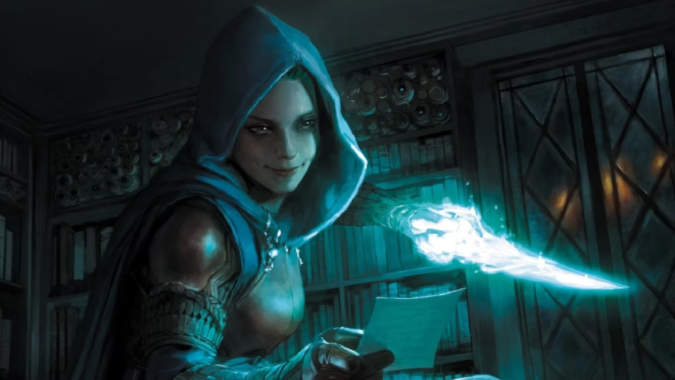What you need to know about changes coming to the Rogue class in One D&D

The Rogue class in Dungeons & Dragons 5e has come a long way from its roots as the Thief class back in the AD&D days, but the One D&D Rogue — and the entire concept of Expert Classes, which includes the Bard, Ranger, and Rogue — is reminiscent of those early Thieves. While nobody wants to see a return to the elaborate percentile charts of the old days, Rogues have always been specialists who did a few things and did them very well. True to their names, thieves were experts in stealing. Since the game was being played mostly in dungeons packed with both riches and risks, Thieves (and their Rogue descendants) were designed with a talents, abilities, and skills to make plundering said dungeons easier.
Today’s Rogue has much more variety. Rogues aren’t inherently criminal, and the class is flexible enough to embody a number of archetypes, from an intellectual consulting detective to an explorer trying to bring artifacts back to museums — though can certainly still be masterful cat burglars, tomb raiders, or even dangerous assassins. If the Bard is a jack of all trades and a Ranger is a wilderness survivor, the Rogue is capable of focusing their considerable skill and cunning on whatever field of endeavor they wish.
The One D&D Rogue playtest material focuses on the idea of the Rogue as an expert — so let’s talk about exactly what the updated Rogue class will look like.

Rogues in One D&D
We’ve only seen three revised classes in the One D&D playtest so far, and of them Rogues have changed the least — which is good news if you enjoy the class as it is. Even with these revisions, Rogues will still play much like they do today, but with some tweaks.
Many of the changes lightly shuffle existing features. Expertise is moving from level 6 to level 7, with a subclass feature replacing Expertise at level 6. Evasion is moving from level 7 to level 9, with a feat at level 8 — if you haven’t been following One D&D so far, feats now replace the Ability Score Increase feature for all classes, though there is a feat to increase ability scores as you do now. The subclass feature you currently get at level 9 being rolled up with the feat at level 10.
Here’s a rundown of features that are moving around:
- Level 6: A subclass feature replaces Expertise
- Level 7: Expertise moves from level 6 to level 7
- Level 8: Feat
- Level 9: Evasion moves from level 7 to level 9
- Level 10: A subclass feature and another feat replace the current Archetype feature at level 9 and the Ability Score increase at level 10.
These are all changes, to be sure, but they’re minor changes and basically just space out when you get certain things.
At higher levels, there are fewer changes. Through the next 10 levels, the only ability lost entirely is Blindsense at level 14, which will be replaced by Subtle Strikes at level 13:
When you attack, you know how to exploit a target’s distraction. You have Advantage on any Attack Roll that targets a creature that is within 5 feet of at least one of your allies who isn’t Incapacitated.
It’s a nice addition to give you Sneak Attack damage in even more situations.
The current level 20 capstone ability, Stroke of Luck, moves down to level 18 while Rogues — and all other classes — have an Epic Boon at level 20 instead.
In short, the Rogue is mostly seeing abilities move up and down to space out abilities and integrate subclass abilities more evenly. Only one ability — Blindsense, which allowed you to find invisible creatures within 10 feet — is the only casualty of these changes. Basically, if you are playing a Rogue, you can play that Rogue without much noticeable change between 5e and One D&D.

Rogues can still specialize with Subclasses
What 5e calls “Roguish Archetypes” are simply called Subclasses in the One D&D playtest document, but that’s mostly just a nomenclature change — Archetypes are Subclasses. There’s only one Subclass option available for testing: the Thief, sticking to the classic AD&D Rogue themes I mentioned earlier.
The Thief Subclass isn’t going to be everyone’s favorite, but if your goal is to be the GOAT for dungeon exploration, threat detection, and overall stealing things, this Subclass collects together a delicious suite of abilities to make that happen. It is practically identical to the Thief Archetype that currently exists in 5e, but with a few changes to space the abilities out more or make them more interesting options.
Overall, I really feel like the developers working on One D&D recognized what most of us already knew: the Rogue is already a solid class. While there are certainly improvements to be made, the class didn’t need a wholesale redesign.
I expect that the real meat of the Rogue redesign will be in the Subclasses, which will allow Rogues to specialize in different ways. Will we see Arcane Trickster, Assassin, or Inquisitive Rogues in One D&D? And if so, will they look the same? We still don’t know much about the specialization options Rogues will be able to unlock, and that could change how the class plays significantly.
For now, this redesign looks like a solid enough path to take for the Rogue. They’ll stay good at what they’re currently good at, and get better at what makes them what they are: experts in how to get into (and hopefully out of) trouble.
Please consider supporting our Patreon!
Join the Discussion
Blizzard Watch is a safe space for all readers. By leaving comments on this site you agree to follow our commenting and community guidelines.
 @MatthewWRossi
@MatthewWRossi




